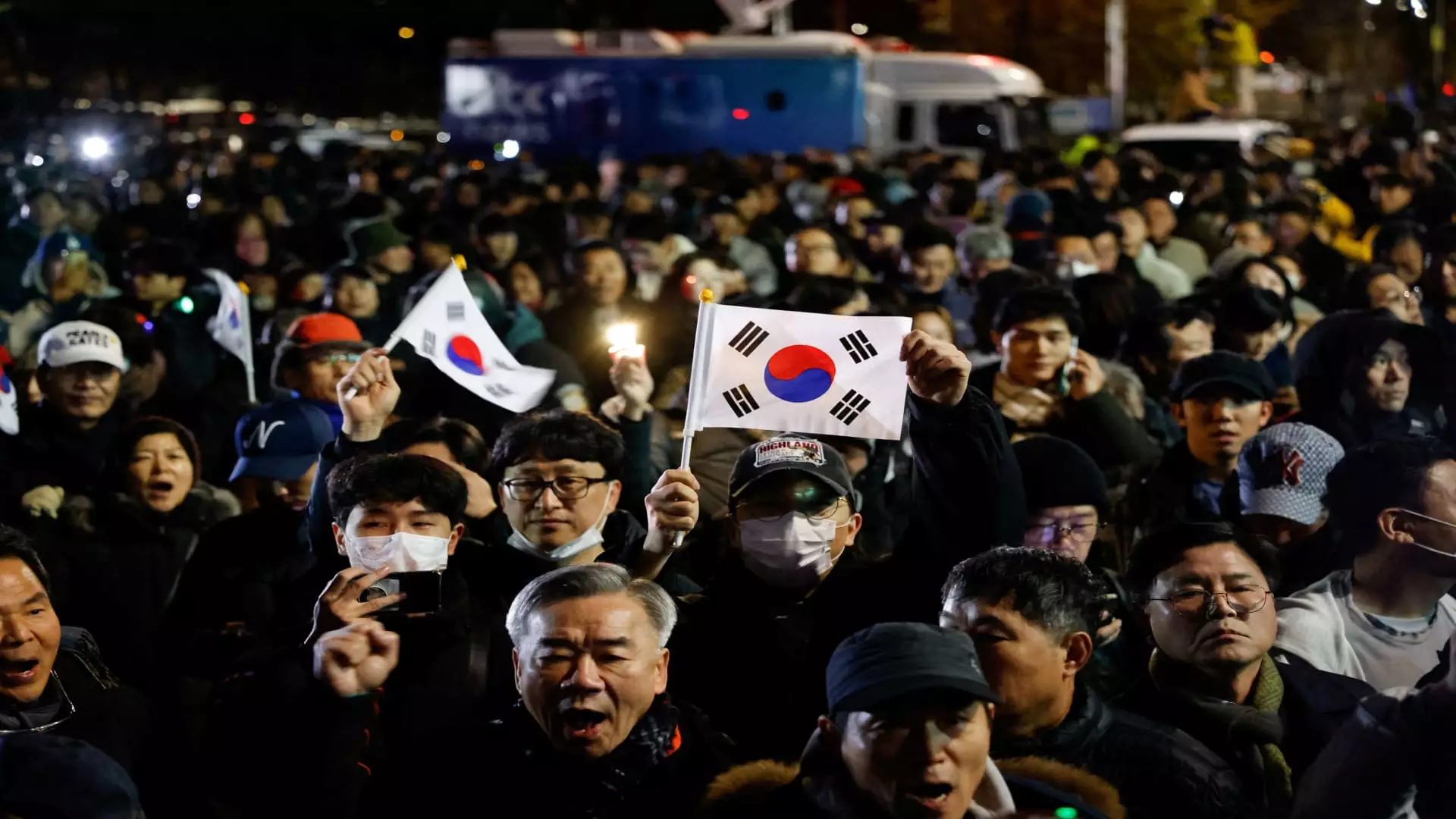In a shocking turn of events that has gripped South Korea, President Yoon Suk Yeol finds himself at the center of a severe leadership crisis. Following a disastrous attempt to impose martial law, Yoon is prohibited from leaving the country while facing rising scrutiny and potential criminal investigation. This unfolding saga is not just a political misstep; it has profound implications for governance, military authority, and international relations in one of Asia’s most vital democracies.
The roots of the current crisis lie in Yoon’s abrupt declaration of martial law. On December 3, Yoon empowered the military with sweeping emergency measures, purportedly to tackle what he termed “anti-state forces.” However, what was intended as a decisive move quickly turned into a political fiasco when the parliament overwhelmingly rejected his decree. Only six hours after granting these powers, Yoon rescinded the order, which stirred dissent among military ranks and solidified opposition against him. This miscalculation highlights a significant lapse in judgment from Yoon, raising questions about his competence as the country’s leader.
Yoon’s failed maneuvers have triggered a criminal investigation, focusing on potential treason charges. While he attempted to deflect responsibility by leaving his future to the People Power Party (PPP), the political terrain has shifted dramatically. As the lawmakers push for accountability, it’s evident that Yoon’s authority is rapidly eroding. The establishment of a task force by his party to manage political stabilization signals the gravity of the situation. Notably, the choice to delegate presidential powers to the prime minister raises significant constitutional questions, as this could undermine the authority vested in the presidency.
One of the starkest reminders of Yoon’s failing leadership is manifested in the growing dissent within military ranks. High-ranking officials have openly challenged his commands, indicating a severe risk to command cohesion. For instance, Colonel Kim Hyun-tae’s admission about executing orders to intervene during the parliamentary vote against martial law showcases the trap Yoon has set for himself. The military’s reluctance to follow potentially illegal orders not only undermines Yoon’s position but also puts the nation’s defense integrity at risk.
The opposition, especially the Democratic Party, has capitalized on Yoon’s precarious position. Their calls for impeachment and arrest signal a willingness to exploit the perceived weakness of Yoon’s administration. Significantly, the opposition argues that the transfer of executive powers to the prime minister is unconstitutional, further complicating Yoon’s already fragile governance. As dissent festers, the political landscape threatens to shift, not just for Yoon, but for the entire administration.
Beyond the political chaos, there are grave economic implications for South Korea, which is a major global player, particularly in the tech sector, given its position as a critical supplier of memory chips. Opposition leader Lee Jae-myung’s warnings about the potential irreversible damage to the economy underscore the urgency of stabilizing the political situation. The finance ministry’s attempts to stabilize financial markets signify the interconnectedness of politics and economics in this volatile environment. Ultimately, political instability can deter foreign investment and disrupt essential trade relations, negatively impacting the economy.
South Korea’s tumultuous political environment does not exist in a vacuum. International allies, notably the United States, are closely monitoring developments. Recent events have prompted U.S. officials to rethink scheduled engagements, given the implications for regional security. The ascendant military collaboration between North Korea and Russia only exacerbates worries about stability and governance in Seoul. This is a crucial moment; the world’s eyes are on how South Korea navigates these challenges.
As Yoon Suk Yeol grapples with this mounting crisis, the question of whether he can restore trust and authority remains uncertain. With calls for his resignation intensifying and potential legal battles on the horizon, his presidency hangs by a thread. The future of South Korea’s political landscape is at a crossroads, caught between the imperatives of democratic accountability and the pressing need for stability during tumultuous times. Whether Yoon can weather the storm or if the nation will pursue a new direction remains to be seen, but one thing is clear: South Korea’s political future is precarious, and the ramifications of this crisis will resonate far beyond its borders.

